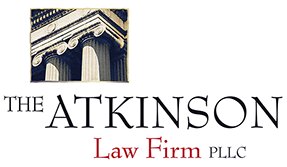Best Accidents & Injuries Lawyers in North Carolina
Share your needs with us, get contacted by law firms.
Free. Takes 2 min.
Or refine your search by selecting a city:
List of the best lawyers in North Carolina, United States
United States Accidents & Injuries Legal Articles
Browse our 1 legal article about Accidents & Injuries in United States written by expert lawyers.
- What to Do After a Serious Car Accident in the US: A Legal Step-by-Step Guide
- Call 911, get medical help, and do not admit fault. Photograph the scene, vehicles, and your injuries, and get witness names and the officer's report number. Report the crash to your insurer quickly. In no-fault states, PIP deadlines are short (e.g., Florida requires initial treatment within 14 days; New York... Read more →
About Accidents & Injuries Law in North Carolina, United States
Accidents and injuries law, often referred to as personal injury law, covers legal disputes that arise when one person suffers harm due to the accident or injury and someone else might be legally responsible for that harm. In North Carolina, this area of law is designed to help victims recover compensation for physical and emotional injuries, property damage, and related losses. Typical cases include car accidents, workplace injuries, slip and falls, and medical malpractice. The primary aim is to restore the injured party, as much as possible, to their original position before the incident occurred.
Why You May Need a Lawyer
Dealing with accidents and injuries can be overwhelming, especially when you are facing physical pain, emotional distress, lost wages, or mounting medical bills. North Carolina law involves specific legal standards and processes that can be challenging for individuals to navigate alone. Common situations where you might need legal help include:
- Recovering compensation from at-fault parties or insurance companies
- Disputes over who was responsible for the accident
- Denial of insurance claims or low settlement offers
- Complex injuries or long-term disability claims
- Workplace accidents involving workers compensation
- Medical malpractice or nursing home abuse concerns
A lawyer who specializes in North Carolina accidents and injuries law can help protect your rights, handle negotiations, gather critical evidence, and guide you through the court system if necessary.
Local Laws Overview
Several legal concepts are key to accident and injury cases in North Carolina:
- Contributory Negligence: North Carolina is one of a few states that follows the pure contributory negligence rule. This means if you are found even slightly at fault for the accident (even 1 percent), you may be barred from recovering any damages from other parties. This strict rule makes securing compensation challenging without professional legal help.
- Statute of Limitations: Most personal injury lawsuits in North Carolina must be filed within three years of the accident. Certain cases, such as wrongful death, have a shorter, two-year statute of limitations.
- Auto Insurance Requirements: North Carolina requires all drivers to carry minimum liability insurance. After an auto accident, claims are typically filed with the at-fault driver’s insurance.
- Workers Compensation: For workplace injuries, North Carolina has a no-fault workers compensation system. Most employers are required to provide this coverage, which pays for medical care and partial wage replacement.
- Medical Malpractice: There are special rules for suing health care providers, including expert witness requirements and pre-suit notice in some cases.
Understanding these regulations is crucial to making informed decisions after an accident or injury in North Carolina.
Frequently Asked Questions
What should I do immediately after an accident in North Carolina?
Seek medical attention, report the incident to the appropriate authorities (such as the police or your employer), gather evidence (photos, witness contact details), and contact your insurance company. Avoid admitting fault or signing any documents without legal advice.
How long do I have to file a personal injury lawsuit?
In most cases, you have three years from the date of the accident to file a lawsuit. Wrongful death lawsuits must be filed within two years. It’s best to act as soon as possible to preserve evidence and protect your rights.
Can I still recover compensation if I was partially at fault?
No. North Carolina’s contributory negligence rule means that if you are found to be even one percent at fault for the accident, you will not be able to recover compensation from others involved.
How is fault determined in North Carolina accidents?
Fault is determined based on evidence such as accident reports, witness statements, physical evidence, expert testimony, and legal standards. Police or insurance investigators often provide initial assessments, but legal representation can help challenge or clarify these findings.
What damages can I recover in an accident or injury claim?
You may be entitled to compensation for medical expenses, lost wages, pain and suffering, property damage, and, in some cases, punitive damages if the at-fault party’s actions were especially reckless or malicious.
What if the other party does not have insurance?
If the at-fault individual does not have insurance, you may be able to recover through your own uninsured or underinsured motorist coverage or pursue a personal lawsuit against the individual.
Do I need a lawyer for a minor accident or injury?
Not always, but even seemingly minor cases can become complicated, especially if injuries worsen or insurance companies dispute your claim. A consultation with a lawyer can help you understand your options.
What happens if I was injured at work?
Report the injury to your employer promptly and seek medical treatment. Most work-related injuries are covered under North Carolina’s workers compensation system, which provides benefits regardless of fault.
How much does it cost to hire a personal injury lawyer?
Many personal injury lawyers work on a contingency fee basis, meaning you pay only if you win your case or reach a settlement. Fee percentages vary, so discuss the arrangement upfront with any lawyer you contact.
What is the process for filing a lawsuit in North Carolina?
The process typically involves investigation, assessment of damages, filing a claim or lawsuit, discovery (exchange of evidence), negotiation, and either settlement or trial. An attorney can guide you through each step and represent your interests.
Additional Resources
Several organizations and agencies can assist you if you are dealing with an accident or injury in North Carolina:
- North Carolina Judicial Branch - for information on courts and case filings
- North Carolina Industrial Commission - handles workers compensation claims
- North Carolina Department of Insurance - for insurance complaints and guidance
- North Carolina Bar Association - for lawyer referrals and information
- Local legal aid organizations and advocacy groups for personal injury victims
Next Steps
If you have suffered an accident or injury in North Carolina, start by seeking necessary medical attention and reporting the incident to the appropriate parties. Gather and preserve any evidence related to your accident. Document your injuries, expenses, and communication with insurance companies or others involved.
Next, consider consulting with a qualified lawyer experienced in North Carolina accidents and injuries law. Many offer free or low-cost initial consultations and can advise you on the merits of your case, potential compensation, and next steps. Acting quickly is important, especially given strict time limits for filing claims or lawsuits.
By being informed and seeking the right legal assistance, you can protect your rights and improve your chances of achieving a favorable outcome.
Lawzana helps you find the best lawyers and law firms in North Carolina through a curated and pre-screened list of qualified legal professionals. Our platform offers rankings and detailed profiles of attorneys and law firms, allowing you to compare based on practice areas, including Accidents & Injuries, experience, and client feedback.
Each profile includes a description of the firm's areas of practice, client reviews, team members and partners, year of establishment, spoken languages, office locations, contact information, social media presence, and any published articles or resources. Most firms on our platform speak English and are experienced in both local and international legal matters.
Get a quote from top-rated law firms in North Carolina, United States — quickly, securely, and without unnecessary hassle.
Disclaimer:
The information provided on this page is for general informational purposes only and does not constitute legal advice. While we strive to ensure the accuracy and relevance of the content, legal information may change over time, and interpretations of the law can vary. You should always consult with a qualified legal professional for advice specific to your situation.
We disclaim all liability for actions taken or not taken based on the content of this page. If you believe any information is incorrect or outdated, please contact us, and we will review and update it where appropriate.
Browse accidents & injuries law firms by service in North Carolina, United States
North Carolina, United States Attorneys in related practice areas.
Browse accidents & injuries law firms by city in North Carolina
Refine your search by selecting a city.

















